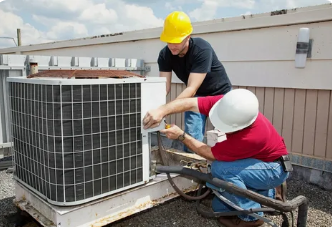Gated communities in Oakland offer residents controlled access and improved security features that distinguish them from traditional neighborhoods. These communities require specialized security approaches that balance protection with the comfortable living environments residents expect. Knowing what makes gated community security effective helps both current and prospective residents appreciate the value these services provide.
The Role of Security in Gated Communities
Gated communities attract residents specifically because of their security features. The gates, walls, and controlled access points provide physical barriers, but professional security guards make these barriers truly effective. Without trained personnel managing access and monitoring properties, physical security features alone provide limited protection.
Oakland's gated communities vary in size and amenities. Some feature a dozen homes while others include hundreds of residences along with recreational facilities, parks, and commercial spaces. Each community requires security programs scaled to its specific characteristics and resident expectations.
Security in these environments serves multiple purposes. It prevents unauthorized access, deters criminal activity, enforces community rules, provides emergency response, and contributes to the overall quality of life that makes gated communities desirable.
Access Control & Guest Management
The primary function of gated community security Oakland involves controlling who enters and exits. Security guards stationed at entrance gates serve as the first line of defense against unauthorized access.
Guards verify resident credentials through various methods. This might include scanning access cards, checking license plates against authorized vehicle lists, or using biometric systems. The verification process must be quick enough to prevent traffic backups while remaining thorough enough to maintain security.
Guest management requires different procedures. Guards typically require visitors to provide names and destinations, then contact residents to confirm authorization. Once confirmed, guards issue temporary passes that identify authorized guests and track their entry times.
Delivery and service providers present specific challenges. Gated communities receive regular visits from package delivery services, maintenance contractors, and other vendors. Security protocols must facilitate these necessary visits while preventing unauthorized individuals from using service access as entry methods.
Some Oakland gated communities use technology to streamline access control. Mobile apps allow residents to pre-authorize guests, receive notifications when visitors arrive, and remotely grant access. Guards integrate these systems with traditional verification methods to maintain security while improving convenience.
Patrol Services Within Communities
Beyond gate security, guards patrol throughout gated communities. These patrols serve multiple purposes: deterring criminal activity, identifying maintenance issues, enforcing community rules, and providing visible reassurance to residents.
Patrol routes should cover all streets, common areas, and facilities within communities. Guards vary their routes and timing to prevent predictability while ensuring that all areas receive regular attention.
During patrols, guards watch for suspicious vehicles or individuals, check that community amenities are secured properly, verify that lighting functions correctly, and look for safety hazards. They also enforce parking rules and identify violations of community standards.
Night patrols are particularly important. Oakland gated communities, despite their security features, can still be targets during overnight hours. Guards patrolling during these times provide protection when residents are most vulnerable.
Mobile patrols use vehicles to cover larger communities efficiently, but foot patrols allow guards to observe details they might miss from vehicles. Effective security programs combine both approaches based on community layout and specific needs.
Common Area & Amenity Security
Many Oakland gated communities include shared amenities such as swimming pools, tennis courts, fitness centers, clubhouses, and parks. These areas require security oversight to ensure they are used appropriately and safely.
Guards verify that individuals using amenities are residents or authorized guests. This prevents unauthorized use and helps maintain the exclusive character that residents value.
Amenity security also includes enforcing facility rules. This might involve ensuring that pool areas close at designated times, that fitness center capacity limits are followed, or that clubhouse events comply with community policies.
Guards respond to incidents in common areas, from minor disputes between residents to medical emergencies. Having security personnel nearby when issues arise allows immediate response that prevents escalation.
Monitoring these areas also helps prevent vandalism and keeps facilities well-maintained. Guards report maintenance needs and watch for damage that requires repair.
Enforcement of Community Rules
Homeowner associations in gated communities establish rules designed to maintain property values and quality of life. Security guards help enforce these rules, though the extent of enforcement authority varies by community.
Common enforcement activities include documenting parking violations, reporting architectural violations such as unauthorized modifications, and addressing noise complaints. Guards provide objective documentation that HOA boards use when addressing rule violations.
This enforcement role requires diplomacy. Guards must balance maintaining standards with preserving positive relationships with residents. Training in conflict resolution and customer service helps guards handle these situations professionally.
Some communities give security personnel authority to issue warnings or citations for rule violations. Others limit guards to reporting violations to HOA management. Clear policies about enforcement authority prevent misunderstandings and ensure consistent application of rules.
Emergency Response Capabilities
Security guards in Oakland gated communities serve as first responders during emergencies. Their presence within communities allows immediate action when residents need help.
Medical emergencies require guards trained in first aid and CPR. They provide essential care while waiting for paramedics and help emergency services locate patients quickly within communities.
Fire emergencies demand rapid response. Guards activate alarms, notify fire departments, and assist with evacuations if necessary. They also ensure that emergency vehicles can access communities quickly by opening gates and directing responders.
Security threats such as suspicious individuals or break-ins require guards to assess situations, protect residents, and coordinate with law enforcement. Guards familiar with community layouts can provide police with detailed information that facilitates effective responses.
Natural disasters or severe weather events also benefit from having security personnel on-site. Guards help implement emergency protocols, check on vulnerable residents, and maintain order during crises.
Building Trust with Residents
Effective gated community security requires positive relationships between guards and residents. Guards who know residents by name and sight can identify unauthorized individuals more easily and provide more personalized service.
Regular interaction helps build these relationships. Guards who greet residents pleasantly, remember details about their lives, and show genuine concern create friendly atmospheres while maintaining security.
This familiarity also helps guards identify unusual situations. When guards know residents' routines, they can recognize when something seems wrong and investigate appropriately.
Security services such as Vigilant Pro Private Security Services train guards to balance friendliness with professionalism. Guards must be approachable while maintaining the authority necessary to enforce security protocols.
Communication Systems
Effective communication between security guards, residents, and community management is necessary for optimal security. Modern gated communities increasingly use technology to facilitate this communication.
Guards need reliable radio systems to coordinate with each other and communicate with dispatch or supervisors. These systems allow rapid response to incidents and ensure that guards can request backup when needed.
Communication with residents might include mobile apps that allow direct contact with security, email or text notifications about security issues, and regular security reports distributed to all homeowners.
Guards also communicate with HOA boards and property management. Regular reports document security activities, incidents, and concerns that require management attention.
Emergency communication systems ensure that residents can contact security quickly during crises. This might include emergency call boxes placed throughout communities or dedicated phone lines that connect directly to security personnel.
Parking Management & Vehicle Security
Parking issues in gated communities require ongoing security attention. Guards enforce parking rules, ensure that guest parking is used appropriately, and monitor for abandoned or unauthorized vehicles.
Vehicle security includes watching for break-ins, which can occur even in gated communities. Guards patrol parking areas, respond to vehicle alarms, and investigate suspicious activity around cars.
Some communities have specific parking challenges such as limited spaces, resident disputes over parking locations, or visitors parking inappropriately. Security guards mediate these situations and enforce parking policies consistently.
Guards also manage parking during community events when regular parking areas may be insufficient. This includes directing overflow parking and ensuring that emergency vehicle access remains clear.
Property Value Protection
Security services contribute to property values in Oakland gated communities. Properties in secure, well-managed communities command higher prices than similar homes in less secure areas.
Visible security demonstrates community commitment to safety, which attracts buyers who prioritize protection for their families and property. This demand supports higher property values and faster sales when residents decide to move.
Security guards also help maintain the physical appearance of communities by reporting maintenance needs, preventing vandalism, and ensuring that common areas remain well-kept. The overall impression of well-managed, secure communities protects resident investments.
Vendor & Contractor Management
Gated communities regularly receive visits from contractors, service providers, and maintenance workers. Security guards verify credentials and monitor these individuals while they are in communities.
Guards maintain logs of vendor access, documenting who entered, when they arrived and departed, and what work they performed. This tracking provides accountability and helps investigate any problems that arise.
Some contractors require recurring access. Security services establish procedures for frequent vendors that streamline entry while maintaining security. This might include pre-authorization systems or special access credentials.
Guards also ensure that contractors follow community rules about work hours, parking, and site cleanup. This oversight protects residents from disruptions while allowing necessary work to proceed.
Balancing Security with Privacy
Gated community security must respect resident privacy while maintaining protection. Guards need access to information that helps them perform duties effectively, but this information must be handled confidentially.
Security services establish clear policies about information access and use. Guards should know details necessary for security purposes but must keep this information private and use it only for legitimate security needs.
Surveillance systems in communities must balance security benefits with privacy concerns. Camera placement should focus on common areas and entry points rather than private homes. Residents should understand what areas are monitored and how footage is used.
Professional security providers such as Vigilant Pro Private Security Services train guards on privacy expectations and legal requirements. This training ensures that security practices comply with laws while respecting resident concerns.
Cost Sharing & Value
Security costs in gated communities are typically shared among all homeowners through HOA fees. This cost sharing makes professional security affordable while providing complete protection.
The value of security services extends beyond crime prevention. Guards provide customer service, enforce rules that maintain property values, respond to emergencies, and contribute to quality of life. These multiple benefits justify security investments.
Communities should regularly review security programs to ensure they meet current needs and provide good value. This might include resident surveys about security satisfaction, analysis of incident reports, and comparison of security costs to benefits received.
Oakland gated communities that invest in professional security services create environments where residents feel safe and comfortable. The combination of physical security features and trained security guards provides protection that justifies the premium these properties command. If residents chose gated communities primarily for security or for amenities and lifestyle, professional guards improve the living experience and protect the significant investments that homeownership embodies. As communities grow and change, adaptable security programs ensure that protection keeps pace with evolving needs and maintains the peace of mind that makes gated community living attractive.












Write a comment ...